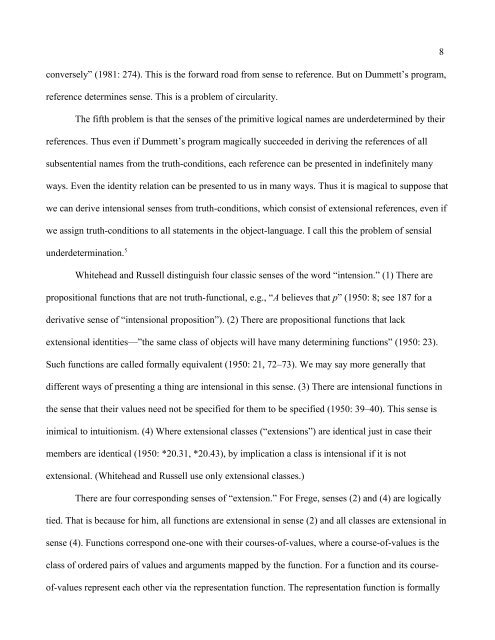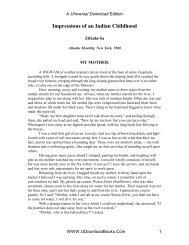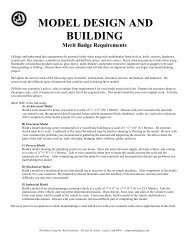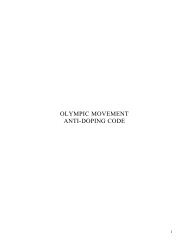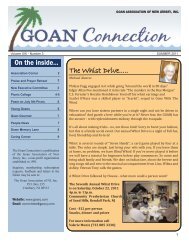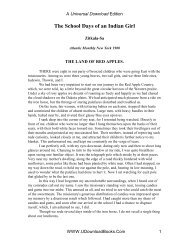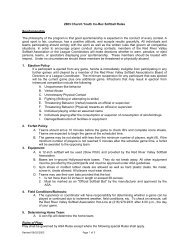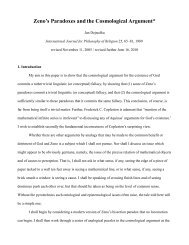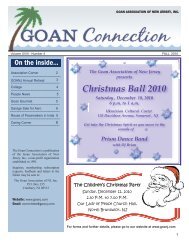Dummett's Backward Road to Frege and to Intuitionism - Tripod
Dummett's Backward Road to Frege and to Intuitionism - Tripod
Dummett's Backward Road to Frege and to Intuitionism - Tripod
You also want an ePaper? Increase the reach of your titles
YUMPU automatically turns print PDFs into web optimized ePapers that Google loves.
conversely” (1981: 274). This is the forward road from sense <strong>to</strong> reference. But on Dummett’s program,<br />
reference determines sense. This is a problem of circularity.<br />
The fifth problem is that the senses of the primitive logical names are underdetermined by their<br />
references. Thus even if Dummett’s program magically succeeded in deriving the references of all<br />
subsentential names from the truth-conditions, each reference can be presented in indefinitely many<br />
ways. Even the identity relation can be presented <strong>to</strong> us in many ways. Thus it is magical <strong>to</strong> suppose that<br />
we can derive intensional senses from truth-conditions, which consist of extensional references, even if<br />
we assign truth-conditions <strong>to</strong> all statements in the object-language. I call this the problem of sensial<br />
underdetermination. 5<br />
Whitehead <strong>and</strong> Russell distinguish four classic senses of the word “intension.” (1) There are<br />
propositional functions that are not truth-functional, e.g., “A believes that p” (1950: 8; see 187 for a<br />
derivative sense of “intensional proposition”). (2) There are propositional functions that lack<br />
extensional identities—”the same class of objects will have many determining functions” (1950: 23).<br />
Such functions are called formally equivalent (1950: 21, 72–73). We may say more generally that<br />
different ways of presenting a thing are intensional in this sense. (3) There are intensional functions in<br />
the sense that their values need not be specified for them <strong>to</strong> be specified (1950: 39–40). This sense is<br />
inimical <strong>to</strong> intuitionism. (4) Where extensional classes (“extensions”) are identical just in case their<br />
members are identical (1950: *20.31, *20.43), by implication a class is intensional if it is not<br />
extensional. (Whitehead <strong>and</strong> Russell use only extensional classes.)<br />
There are four corresponding senses of “extension.” For <strong>Frege</strong>, senses (2) <strong>and</strong> (4) are logically<br />
tied. That is because for him, all functions are extensional in sense (2) <strong>and</strong> all classes are extensional in<br />
sense (4). Functions correspond one-one with their courses-of-values, where a course-of-values is the<br />
class of ordered pairs of values <strong>and</strong> arguments mapped by the function. For a function <strong>and</strong> its course-<br />
of-values represent each other via the representation function. The representation function is formally<br />
8


